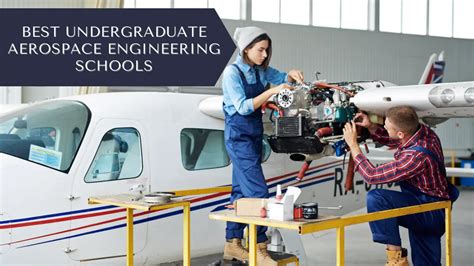Table 1: Top 10 Colleges for Aerospace Engineering Undergraduate

| Rank | University | State | Location |
|---|---|---|---|
| 1 | Massachusetts Institute of Technology | Massachusetts | Cambridge |
| 2 | Stanford University | California | Stanford |
| 3 | California Institute of Technology | California | Pasadena |
| 4 | Georgia Institute of Technology | Georgia | Atlanta |
| 5 | Purdue University | Indiana | West Lafayette |
| 6 | University of Michigan | Michigan | Ann Arbor |
| 7 | Texas A&M University | Texas | College Station |
| 8 | University of Illinois at Urbana-Champaign | Illinois | Urbana-Champaign |
| 9 | University of Maryland | Maryland | College Park |
| 10 | Pennsylvania State University | Pennsylvania | University Park |
Factors to Consider When Choosing a College for Aerospace Engineering Undergraduate
- Reputation and Rankings: Consider the rankings of the college in aerospace engineering. Rankings from organizations like U.S. News & World Report and QS World University Rankings can provide insights into the reputation and quality of the program.
- Faculty and Research: Research the faculty expertise and research interests. Look for colleges with professors who are actively engaged in cutting-edge aerospace research.
- Curriculum and Facilities: Ensure the college offers a comprehensive curriculum covering areas such as aerodynamics, propulsion, and spacecraft design. The availability of state-of-the-art facilities like wind tunnels and flight simulators is also crucial.
- Career Services and Outcomes: Inquire about the university’s career services and the success of its graduates in the aerospace industry. Look for colleges with strong partnerships with aerospace companies and a history of placing students in top positions.
- Location: Consider the location of the college. Proximity to aerospace centers or companies can provide opportunities for internships, networking, and industry connections.
Emerging Fields in Aerospace Engineering
- Urban Air Mobility: The development of electric vertical take-off and landing (eVTOL) aircraft creates new opportunities for urban transportation.
- Advanced Propulsion Systems: Propulsion systems that utilize electric, hybrid, or hypersonic technologies are revolutionizing aircraft performance and energy efficiency.
- Autonomous Systems: The integration of autonomous systems into aircraft and spacecraft allows for increased efficiency, safety, and mission flexibility.
- Space Exploration: Continued advancements in space exploration create exciting possibilities for aerospace engineers to design and develop spacecraft and technologies for deep space missions.
- Cybersecurity: The increasing reliance on digital technologies in aerospace systems highlights the need for robust cybersecurity measures.
Innovation and Creativity in Aerospace Engineering
Imaginative Ideas for New Applications
- AeroMorphosis: Designing aircraft that can transform their shape to adapt to different flight conditions.
- Space Ambulances: Developing spacecraft that can provide emergency medical care in remote or inaccessible locations.
- Lunar Construction: Utilizing 3D printing and other advanced technologies to create lunar habitats and infrastructure.
- Electromagnetic Propulsion: Exploring the potential of using electromagnetic fields to propel aircraft and spacecraft.
- Bio-Inspired Aerospace: Mimicking nature’s designs to create more efficient and sustainable aerospace systems.
Table 2: Average Salaries for Aerospace Engineers
| Experience Level | Annual Salary |
|---|---|
| Entry-Level | $75,000 |
| 3-5 Years | $90,000 |
| 6-10 Years | $110,000 |
| 10+ Years | $130,000 |
Table 3: Aerospace Engineering Job Outlook
| Occupation | Projected Growth 2021-2031 |
|---|---|
| Aerospace Engineers | 11% |
| Astronautical Engineers | 21% |
| Flight Test Engineers | 14% |
| Propulsion Engineers | 10% |
| Structures Engineers | 10% |
Table 4: Top Aerospace Engineering Companies
| Company | Location |
|---|---|
| Boeing | Seattle, Washington |
| Lockheed Martin | Bethesda, Maryland |
| Airbus | Toulouse, France |
| Northrop Grumman | Falls Church, Virginia |
| SpaceX | Hawthorne, California |
In-Demand Skills for Aerospace Engineers
- Advanced Mathematics and Physics
- Computer-Aided Design (CAD) Proficiency
- Systems Engineering and Analysis
- Flight Testing and Simulation
- Propulsion Systems Knowledge
- Materials Science and Composites
- Cybersecurity and Data Analytics
- Communication and Teamwork Skills
Conclusion
Choosing the right college for aerospace engineering undergraduate is crucial for a successful career in this dynamic field. By considering factors such as reputation, curriculum, and location, students can find the best fit for their goals and aspirations. The emerging fields of aerospace engineering offer exciting opportunities for creative and innovative individuals to shape the future of aviation, space exploration, and beyond.
